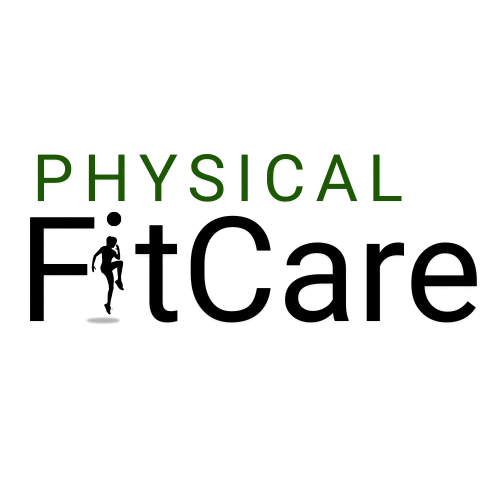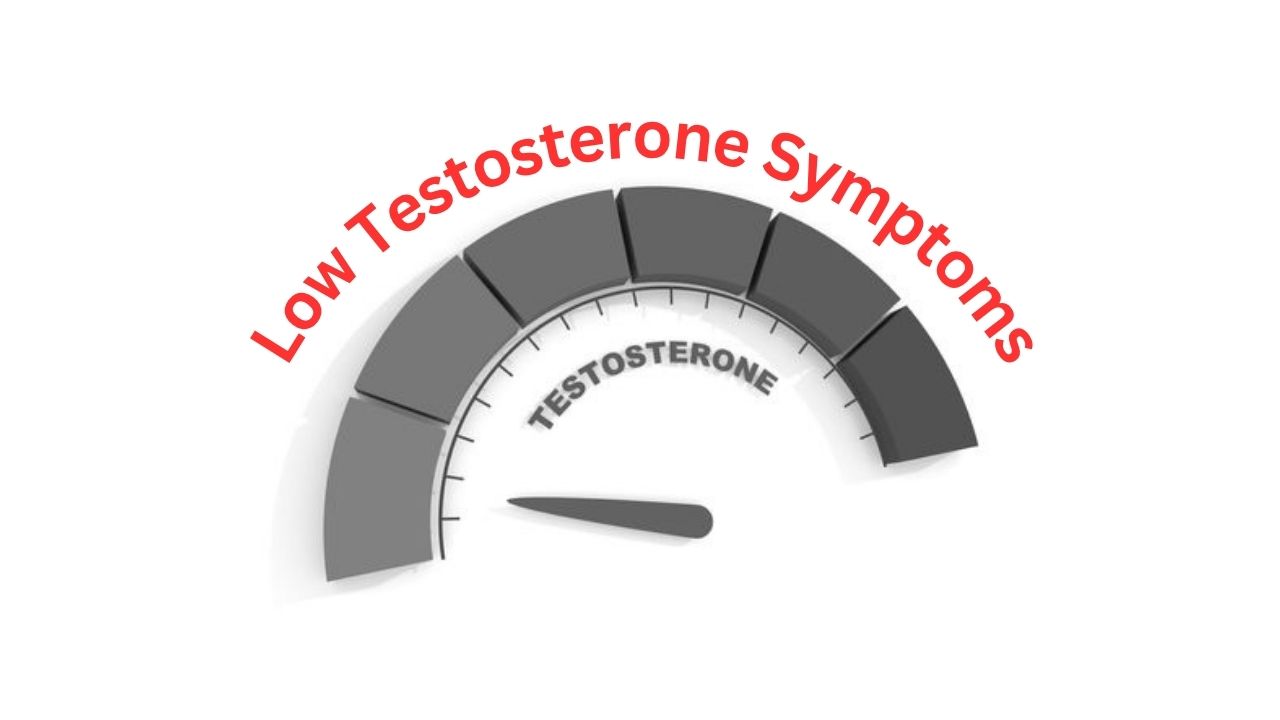Low testosterone symptoms are becoming increasingly common among men today, especially those over 30. While a drop in testosterone levels is a natural part of aging, many men experience symptoms of low testosterone earlier due to lifestyle factors, stress, and poor diet. If you’ve been feeling unusually tired, less motivated, or not quite yourself lately, it might be time to explore whether low testosterone in men is to blame.
What Is Low Testosterone (Low T)?
Testosterone is a crucial male hormone responsible for muscle growth, bone strength, mood regulation, and sexual health. When testosterone levels drop below normal, it leads to what doctors call testosterone deficiency or low T.
Normal testosterone levels typically range between 300 to 1,000 ng/dL. Anything below this range may cause low testosterone symptoms, affecting both physical and emotional well-being.
While low testosterone in men is most common after age 40, even younger men can experience it due to stress, poor sleep, obesity, or medical conditions.
Common Low Testosterone Symptoms
Recognizing the symptoms of low testosterone early can help you take timely action. Here are the most common low testosterone effects you should be aware of:
Low Energy and Fatigue
One of the first and most noticeable signs of low testosterone is constant tiredness. Even after a full night’s sleep, men with low testosterone and fatigue often feel drained, sluggish, and unmotivated.
Reduced Muscle Mass and Strength
Testosterone helps build and maintain muscle. When levels drop, muscle mass starts to decline, leading to weakness and loss of tone. If your workouts feel harder or your progress has stalled, low testosterone levels could be the culprit.
Increased Body Fat
Men with testosterone deficiency may notice more fat accumulation, especially around the belly. This change often happens due to hormonal imbalance, slowing metabolism, and reduced muscle mass.
Low Sex Drive (Libido)
A major symptom of low testosterone is a decrease in sexual desire. While libido naturally fluctuates, a consistent drop could indicate low testosterone in men.
Erectile Dysfunction
Although not the only cause, low testosterone and erectile dysfunction often go hand-in-hand. Low T can make it difficult to achieve or maintain an erection, even if desire is present.
Mood Swings and Depression
Low testosterone doesn’t just affect your body it impacts your mind too. Many men experience low testosterone and depression, irritability, or anxiety. Hormones play a big role in mood stability and confidence.
Memory Problems and Poor Focus
Struggling to concentrate or remember things? Testosterone supports cognitive function. A decline in levels can result in brain fog, forgetfulness, and lack of mental clarity.
Sleep Issues
Men with low T symptoms often suffer from insomnia or disrupted sleep patterns. Hormone imbalance affects the body’s natural circadian rhythm, making rest less restorative.
Hair Loss
Another visible sign of low testosterone is thinning hair or baldness. Testosterone plays a role in hair growth, so its reduction may accelerate hair shedding.
Decreased Bone Density
Over time, testosterone deficiency can weaken bones, increasing the risk of fractures or osteoporosis, especially in older men.
Early Signs of Low Testosterone
Identifying early signs of low testosterone is key to preventing long-term effects. These include:
- Morning fatigue or lack of motivation
- Decrease in morning erections
- Mild mood swings or irritability
- Slow recovery after workouts
- Reduced interest in social or physical activities
If you notice these early indicators, consult a doctor for a low testosterone diagnosis before the problem worsens.
Low Testosterone Causes
There are multiple low testosterone causes, ranging from natural aging to lifestyle choices. The most common include:
- Aging – Testosterone levels decline by about 1% per year after age 30.
- Obesity – Excess fat tissue converts testosterone into estrogen, reducing levels.
- Stress – Chronic stress increases cortisol, which suppresses testosterone production.
- Poor Diet – Deficiency in zinc, vitamin D, and protein affects hormone balance.
- Lack of Sleep – Testosterone is produced during deep sleep; insufficient rest lowers it.
- Medications – Certain drugs, like steroids or antidepressants, can suppress testosterone.
- Chronic Illness – Conditions like diabetes, thyroid issues, or liver disease impact hormones.
Knowing these causes of low testosterone in men can help you make lifestyle changes to protect your hormonal health.
Low Testosterone in Males Over 40
Men over 40 are at higher risk for low testosterone symptoms due to hormonal changes. At this stage, symptoms like low testosterone and fatigue, loss of libido, and mood changes become more noticeable.
This condition is sometimes referred to as andropause the male equivalent of menopause. Lifestyle adjustments, regular exercise, and a healthy diet can help manage low testosterone in males over 40 effectively.
Low Testosterone Diagnosis
If you suspect testosterone deficiency, the first step is a proper low testosterone diagnosis.
Your doctor will likely:
- Ask about your symptoms of low testosterone
- Perform a physical exam
- Conduct a blood test to measure testosterone levels
It’s best to test testosterone levels in the morning, as that’s when they are highest. A reading below 300 ng/dL typically indicates low testosterone levels.
Low Testosterone Treatment Options
Once diagnosed, several low testosterone treatment options are available:
- Testosterone Replacement Therapy (TRT)
TRT is one of the most effective testosterone deficiency treatments. It involves restoring testosterone levels through:
- Gels or creams
- Injections
- Skin patches
- Pellets
While TRT can relieve low T symptoms, it should always be prescribed and monitored by a healthcare provider due to potential side effects.
- Lifestyle Modifications
Healthy habits play a major role in reversing low testosterone effects naturally.
- Exercise regularly (especially strength training)
- Maintain a balanced diet rich in lean protein, healthy fats, and zinc
- Get 7–8 hours of sleep per night
- Reduce alcohol and quit smoking
- Medications and Supplements
Some men may benefit from testosterone booster for men supplements containing ingredients like fenugreek, ashwagandha, or D-aspartic acid. However, consult your doctor before starting any supplement.
How to Increase Testosterone Naturally
If you prefer avoiding medication, you can still learn how to increase testosterone naturally. Here are proven methods:
- Exercise Regularly – Weight training and HIIT workouts help raise testosterone levels.
- Eat Testosterone-Boosting Foods – Include eggs, nuts, salmon, spinach, and bananas.
- Get Enough Sleep – Deep sleep promotes hormone production.
- Manage Stress – Meditation and yoga lower cortisol, improving testosterone balance.
- Maintain a Healthy Weight – Reducing belly fat helps prevent testosterone conversion to estrogen.
These natural remedies for low testosterone are effective and side-effect-free when followed consistently.
Low Testosterone and Mental Health
There’s a strong link between low testosterone and depression. Men with low T often experience mood swings, sadness, or irritability. This happens because testosterone influences serotonin—the “feel-good” hormone.
If you notice emotional instability along with low testosterone symptoms, don’t ignore it. Mental health is as important as physical health, and addressing hormonal balance can make a big difference.
Low Testosterone and Fatigue Connection
Feeling constantly tired or unmotivated can be frustrating. Low testosterone and fatigue are closely connected because testosterone fuels your energy and stamina. When levels dip, the body can’t maintain optimal energy output. Fixing your testosterone deficiency through lifestyle changes or treatment often restores vitality and motivation.
Natural Remedies for Low Testosterone
Before jumping into medications, try natural remedies for low testosterone to improve hormone levels safely:
- Zinc and Vitamin D supplements
- Herbal boosters like ginseng and ashwagandha
- Cold showers and regular exercise
- Intermittent fasting to balance hormones
- Avoiding processed foods and refined sugar
These simple changes can make a big impact on your overall testosterone health.
Low testosterone in men is a common yet often ignored condition. Recognizing low testosterone symptoms early is the key to recovery. Whether it’s low testosterone and fatigue, low libido, or mood swings, addressing testosterone deficiency through a healthy lifestyle, natural remedies, or low testosterone treatment can help restore your energy, confidence, and vitality.
FAQs ( Frequently Asked Questions )
Early signs include fatigue, low sex drive, mood swings, and loss of muscle strength. Men may also notice decreased motivation and poor sleep quality.
The best way to confirm low testosterone levels is through a blood test. However, if you experience multiple low testosterone symptoms, it’s wise to consult a doctor for proper low testosterone diagnosis.
Yes. Low testosterone and depression are closely linked because testosterone influences mood-regulating chemicals in the brain. Low levels can lead to irritability, sadness, and loss of interest in daily activities.
Common low testosterone causes include aging, stress, obesity, poor diet, lack of sleep, and certain medical conditions like diabetes or thyroid problems.
Low testosterone treatment may involve testosterone replacement therapy (TRT), lifestyle changes, or supplements known as testosterone boosters for men. Your doctor will suggest the best option based on your condition.

